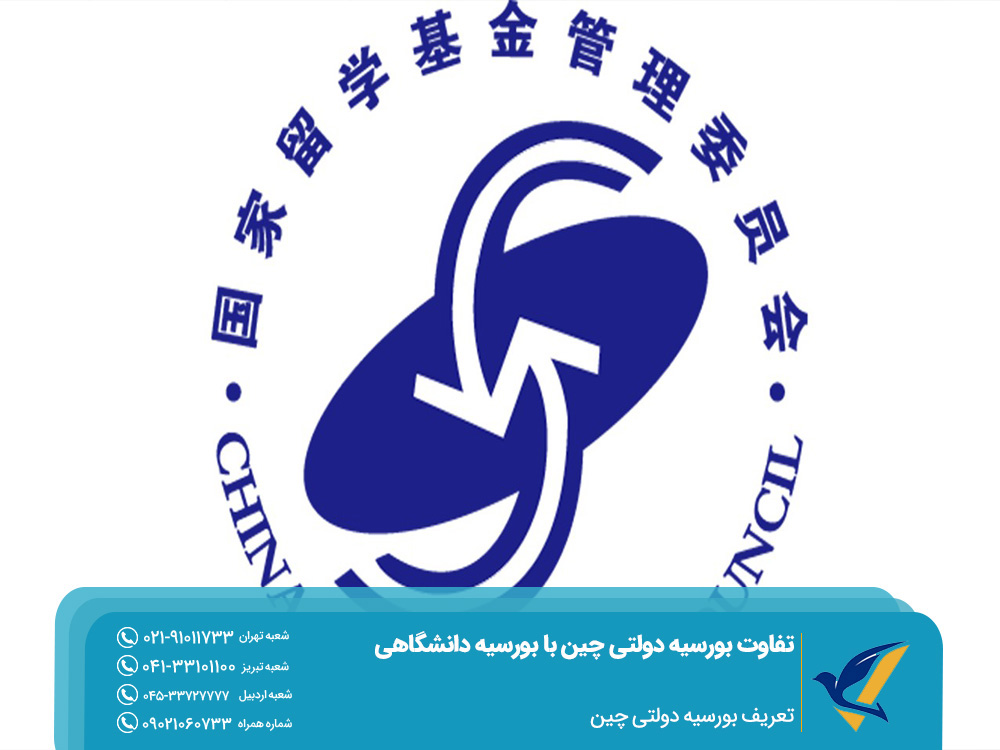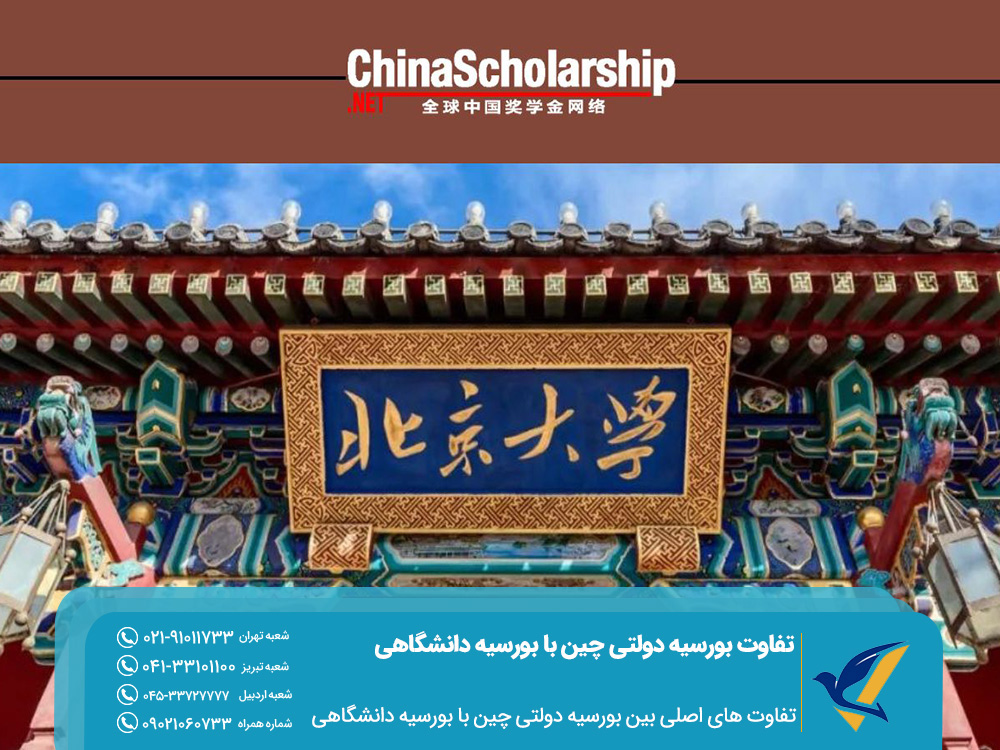The difference between Chinese government scholarships and university scholarships is one of the most frequently asked questions by international students planning to study in China. Both types of scholarships provide valuable opportunities for education, but they differ significantly in terms of details, eligibility, and benefits. Being aware of the conditions for Chinese scholarships—whether government-funded or university-provided—is essential for applicants to choose the option that best aligns with their goals and circumstances.
Moreover, having a deeper understanding of the different types of scholarships in China can help students apply for financial aid with a clearer perspective. To learn more about these two types of scholarships, stay with Elm Vira until the end of this article.
Differences Between Chinese Government Scholarships and University Scholarships: Types of Scholarships in China
Chinese scholarships for international students are divided into several main categories, each with its own benefits and requirements. The Chinese Government Scholarship (CSC) is one of the most popular options. It is offered by the government under the supervision of the China Scholarship Council and typically covers full tuition, living expenses, and health insurance.
University scholarships are offered directly by individual universities. Depending on the policies of each institution, these scholarships may include tuition waivers, monthly stipends, or partial discounts on costs.
Provincial scholarships are provided by local governments to attract international talent. They usually cover fewer expenses compared to government scholarships, but the application process is often simpler. Additionally, some international joint scholarships between China and other countries or global organizations provide diverse opportunities to study in specific fields.
Understanding the types of scholarships and comparing their conditions is an important step in choosing the best option for studying in China. To better grasp the differences between Chinese government scholarships and university scholarships, the following sections explain each type in more detail.

1. Definition of the Chinese Government Scholarship
The Chinese Government Scholarship (CGS) is one of the largest and most comprehensive financial aid programs for international students, offered by the Ministry of Education of China. Its primary goal is to promote scientific and cultural cooperation with other countries and to attract outstanding students from around the world. This scholarship typically covers full tuition, accommodation, health insurance, and even a monthly stipend for living expenses.
One of the key features of the government scholarship is the high level of competition for admission, as applicants from different countries compete for a limited number of spots. This is where being aware of the scholarship requirements—such as GPA, language proficiency, academic CV, and recommendation letters—becomes crucial.
2. Definition of Chinese University Scholarships
University scholarships in China are offered directly by the host institutions and, unlike government scholarships, may only cover part of the expenses. These scholarships can come in various forms, such as tuition discounts, housing allowances, or financial support for research projects. The main difference between Chinese government scholarships and university scholarships is that university scholarships are more flexible, allowing universities to award them based on their specific criteria.
It is worth noting that in some cases, students who do not meet the eligibility criteria for government scholarships can still benefit from university scholarships, as the application process is generally simpler and faster.

Key Differences Between Chinese Government Scholarships and University Scholarships
In recent years, China has become one of the major hubs for higher education worldwide, and its policies for attracting international students have expanded significantly. One of the key factors contributing to the popularity of studying in China is the availability of various scholarships with different levels of coverage. For many applicants, understanding the difference between Chinese government scholarships and university scholarships is crucial, as choosing the right one can shape their academic path and even their future career. Although both are offered under the general term “scholarship,” they differ significantly in terms of eligibility requirements, benefits, limitations, and application procedures.
The Chinese government scholarship is funded by the government and usually provides full coverage for tuition, accommodation, health insurance, and living expenses. However, competition for this scholarship is intense, and strict adherence to eligibility criteria is mandatory. In contrast, university scholarships are offered directly by the institutions themselves, providing more flexibility in admission requirements and sometimes covering only part of the expenses. The application process for university scholarships is generally faster and simpler.
To better understand the differences between Chinese government scholarships and university scholarships, several key factors should be considered:
1. Source of Funding
One of the most important factors differentiating government scholarships from university scholarships is their source of funding. Chinese government scholarships are financed by the central government using national funds. This budget is managed under the supervision of the China Scholarship Council (CSC) and aims to attract top talent from around the world to study in China.
On the other hand, university scholarships are funded directly by the university itself, private sponsors, or affiliated organizations. These sponsors may include large companies, research institutions, or charitable foundations that support education and research at a specific university. Understanding the source of funding is crucial because it directly affects the scholarship’s conditions and the type of benefits you will receive.

2. Coverage of Expenses
One of the main aspects that distinguish Chinese government scholarships from university scholarships is the extent of expense coverage. The Chinese government scholarship typically provides a comprehensive support package that includes full tuition payment, accommodation or dormitory provision, comprehensive health insurance, and a monthly stipend to cover living expenses.
This type of scholarship is ideal for students who want to pursue their studies without financial concerns. In contrast, university scholarships may only cover some of these costs—for example, they might offer a tuition discount or waiver but not include living expenses or health insurance. Therefore, when reviewing Chinese scholarship options, it is important to pay attention to which expenses each scholarship actually covers.
3. Admission Requirements
Admission requirements also highlight the differences between government and university scholarships. Due to the extensive benefits it provides, the Chinese government scholarship is highly competitive and usually requires strong academic records, high GPA, credible recommendation letters, and sometimes a certain level of proficiency in Chinese or English. Strict compliance with all scholarship requirements is mandatory.
University scholarships, on the other hand, are more flexible. Universities may focus more on relevant academic background, specialized skills, or research projects of the applicant. This flexibility increases the chances for students with unique talents or strong resumes in a specific field to secure a university scholarship.
4. Application Process
The application process is another important factor differentiating government and university scholarships. For the Chinese government scholarship, applications must be submitted through the official China Scholarship Council (CSC) website or via the Chinese embassy in the applicant’s home country. This process typically involves multiple steps, including completing an online form, submitting documents, and evaluation by government authorities.
In contrast, university scholarships are applied for directly through the official website of the respective university. This process is often shorter and simpler, allowing for direct communication between the student and the university. Understanding these steps is essential for successful admission and for aligning with the specific requirements of Chinese scholarships.

Advantages and Disadvantages of the Chinese Government Scholarship
To better understand the differences between Chinese government scholarships and university scholarships, it is important to consider the advantages and disadvantages of each. The Chinese government scholarship, due to its comprehensive coverage and extensive benefits, is considered the best choice for many international students. This scholarship not only covers tuition and accommodation but also provides health insurance and a monthly living allowance.
This significantly reduces financial pressure, allowing students to focus fully on their studies and research. However, because of its extensive benefits, competition for the scholarship is extremely high, and the application process is time-consuming and complex. Additionally, strict adherence to all scholarship requirements is mandatory, and any deficiencies in the submitted documents can result in rejection.
Chinese University Scholarships: Advantages and Disadvantages
On the other hand, university scholarships also have their own set of advantages and disadvantages, which should be considered when comparing them with government scholarships. These scholarships generally offer greater flexibility in admission criteria. In many cases, universities focus not only on GPA but also on the student’s skills, abilities, or research projects. The application process is usually simpler and faster, allowing students to communicate directly with university officials.
However, in terms of financial coverage, university scholarships are often more limited and may only cover part of the tuition or study-related costs. Therefore, applicants should carefully review the terms of Chinese university scholarships to determine whether they sufficiently meet their financial and academic needs.

Eligibility Criteria for Chinese Scholarships in 2025
In 2025, the eligibility requirements for Chinese scholarships for international students include holding a valid degree relevant to the intended level of study, maintaining a high GPA, possessing an appropriate language certificate (such as IELTS/TOEFL for English or HSK Level 4 or above for Chinese), a strong statement of purpose, recommendation letters from reputable professors, and in some cases, a research proposal or professional portfolio.
These requirements are particularly crucial for obtaining Chinese government scholarships, and strict adherence significantly increases the likelihood of a successful application. In other words, one of the key factors in choosing between government and university scholarships is a complete understanding of the eligibility criteria for Chinese scholarships. These requirements generally include:
-
Holding a degree relevant to the intended field of study
-
High GPA and strong academic background
-
Language proficiency certificate (HSK for Chinese or IELTS/TOEFL for English)
-
Academic CV, including publications or research projects
-
Recommendation letters from reputable professors
-
Age under 35 for Master’s programs and under 40 for PhD programs
Students aiming for government scholarships should note that fully meeting these requirements greatly enhances their chances of acceptance. In contrast, university scholarships may evaluate some of these criteria with more flexibility.
Student Experiences in Choosing Scholarship Types
Experiences of international students show that understanding the differences between Chinese government scholarships and university scholarships plays a crucial role in their academic and financial success. Many students prefer the Chinese government scholarship because of its full financial coverage, which allows them to focus on their studies and research without financial concerns. However, due to high competition and a complex application process, some students opt to apply for university scholarships first, as these are simpler and offer greater flexibility.
Other students choose university scholarships based on their field of study or area of expertise, as these scholarships often place more emphasis on skills and research projects. Students who have received government scholarships typically cite financial security and full coverage as major benefits, while those benefiting from university scholarships value greater flexibility and closer interaction with faculty.
An important takeaway from these experiences is the value of consulting reliable sources and seeking advice from former students and experts, which can help make an informed choice and increase the likelihood of scholarship success. Overall, a comprehensive understanding of Chinese scholarship requirements and a careful comparison of the two types of scholarships are key to a successful student experience. These insights indicate that choosing between government and university scholarships should be based on individual priorities and the specific conditions of Chinese scholarships.

Key Points for Choosing the Best Type of Scholarship
For students planning to study in China in the coming years, understanding the differences between Chinese government scholarships and university scholarships—and carefully analyzing each option—is the key to selecting the best choice. The first point is to evaluate financial needs and the level of expense coverage. If a student requires full financial support, the government scholarship is the best option. However, if the student has a specific skill set or an outstanding academic record in a particular field, a university scholarship may also be a suitable choice.
The second point is to carefully review the eligibility criteria for Chinese scholarships for the relevant year, as requirements, application procedures, or admission priorities may change annually.
It is also recommended that students rely on reputable sources, official websites, and the experiences of previous students to make a well-informed decision. In summary:
-
If your goal is full financial coverage and you have strong qualifications and a solid academic record, the government scholarship is the best choice.
-
If you prefer greater flexibility and a faster application process, consider a university scholarship.
-
In both cases, preparing your documents carefully and strictly following all scholarship requirements is essential.
Conclusion
The differences between Chinese government scholarships and university scholarships are evident in aspects such as financial coverage, application procedures, and eligibility criteria. While government scholarships are generally more comprehensive, university scholarships also offer unique advantages. By understanding the conditions for each type of Chinese scholarship and carefully comparing the options, students can increase their chances of studying in China either for free or at a low cost.
Choosing the right type of scholarship is a crucial step toward academic success and a fulfilling student life in China. If you are interested in studying in China and obtaining various scholarships, you can request a free consultation with the experts at Elm Vira Immigration Institute to get detailed guidance.
میانگین امتیازات 5 از 5
Vote count: 1 Vote